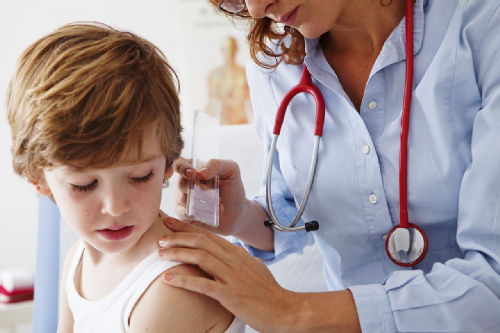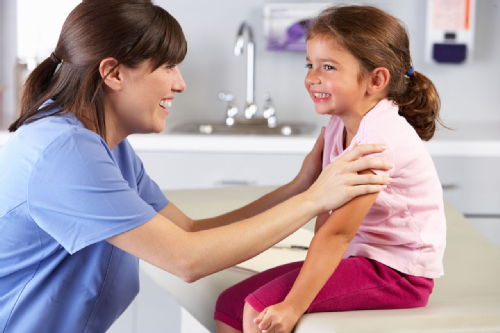All 3 entries tagged Paediatrics
No other Warwick Blogs use the tag Paediatrics on entries | View entries tagged Paediatrics at Technorati | There are no images tagged Paediatrics on this blog
June 27, 2016
10 fingers and 10 toes
Over the course of Core Clinical Education we have had several different themes running throughout. CCE1 was history and examination, CCE2 was investigations and CCE3 focused on basic management. Amongst all this we have also had several speciality areas which have been mixed in amongst all this; Obstetrics and Gynaecology, Orthopaedics, Psychiatry and Child Heath.
For Obstetrics and Gynaecology, we all had the chance to attend shifts on the Labour Ward and spend time with the community midwives. Everyone has an orthopaedics rotation at some point during CCE so we can learn about different types of fractures. For Psychiatry we all attended a Clinical case day with simulated patients to prepare us for our week long psychiatry placements. For child health we have covered a few different topics over the course of CCE which I have thoroughly enjoyed.
In CCE1 the focus was on the new-born assessment, screening programmes and baby checks. We had tutorials to take us through the theory and recap some material from Block 5 in Phase 1. We also spent a day split between the paediatric ward and the special care baby unit. Here we got the chance to see a baby check. The baby I observed in CCE1 was not impressed with us and the paediatrician moved at lightning speed so this week I arranged some time with one of the teaching fellows at George Eliot who specialises in paediatrics.
We found a very chilled out baby and she talked me through the baby check step by step and allowed me the chance to perform some of the examination. Listening to a new-born baby’s heart beating at 150 beats per minute is a bit alarming at first but for babies this is perfectly normal (compared to adults where our heart beat should be 60-90bpm). Getting some hands on experience is invaluable and I am so grateful for the parents who let me practice on their precious new-born.
In CCE2 the focus for child health was acute paediatric medicine. We had some lectures introducing us to history and examination in children. The questions in a paediatric history seem to be endless; you need to ask about the pregnancy, the birth, immunisations, what is their sleep schedule, what do they like to eat, do they have any friends? We spent a morning on the paediatric ward at UHCW speaking to patients and their parents. Some patients are more difficult than others but children are something else entirely, watching the paediatrician exam a wriggly child was as confusing as it was impressive!
In CCE3 the focus has turned to child development. We need to understand how to assess child development and common problems that can cause abnormal development. A full developmental assessment can take up to half an hour and is usually performed by a paediatric registrar. However, we still need to know what the developed milestones are and how we would assess them. We might come across problems in development in GP and we need to be able to assess them competently enough so we can be confident in either providing reassurance or deciding that further investigation and referral is needed.
I have really enjoyed all aspects of the child health theme. Learning the theory is fascinating as the physiology of children is actually very different compared to adults. This year we have had limited practical experience with children in hospital but I have come across plenty in GP. Working with children is hugely rewarding and fun, definitely something to think about when considering future career options!
Joanne
February 06, 2015
Applications!
Before we broke up for Christmas we had 2 group work sessions on careers and applying for speciality positions. We were given the opportunity to think about what things were important to us in the first session – whether it was things like location, money, work-life balance, being in a management position, research, and many more. We all had a completely different list of things, and it was interesting to hear what everyone thought.
The second session looked more at applying for jobs. We were given a list of the applications per job for last year, and could see which specialities were the most competitive. We also looked at how many people applied for multiple specialities, and how many applied for GP alongside a hospital-based career.
The main idea of these sessions however was for us to start thinking about what we can be doing now that will tick off boxes in our applications later on. It was encouraging to see that a lot of the skills that we need evidence of we have already been doing, or could easily start doing. For example, evidence of working in a team can be shown from our CBL sessions.
In September we will have our second Student Selected Component (SSC) opportunity, and this time we are to each take on a research project. This will tick off another box or two! We can choose whether we want to do lab-based research, perhaps questionnaires in patient experience, or an audit for example. We also have the option to either select a project from a list that the university has created and found for us, or arrange and come up with a project ourselves. This allows us to find something that we are really interested in, and even tailored towards possible career paths.

As I am interested in potentially doing Paediatrics, I would love to do a project in that area. Even though a lot of the things we need to check off on the application forms are generic, it would look great if I did end up applying as it would show an ongoing interest. This was one of things that they suggested to us in the sessions – if you have an idea of what area you’d like to go into then we should make the most of any opportunity to show an interest. This could be attending a talk or conference, writing an essay or doing a poster, or perhaps even choosing your elective in that area.
Another great way to show interest is also to be a part of that speciality’s society. A lot of the societies are looking for a new committee at the moment as the final year students are preparing to hand over and leave. Being able to write that you held a committee position would not just look good for showing a keen interest but also help demonstrate different levels of responsibility.
Even though we still have a way to go, it is helpful to have an idea of what to expect in the future and perhaps begin to prepare. It is crazy how fast this term is going already!
December 02, 2014
Honey, I shrunk the patients
Last month, I was filled with dread as I approached the end of my senior surgical block. Not because I am gunning to become a surgeon and would miss scrubbing in during theatre sessions (quite the opposite!) but because I could see my“child health” block looming on the horizon.
Prior to this placement, I had absolutely no experience with children. I am the youngest in my family and I don’t have the hordes of nieces and nephews that other people appear to have acquired during their early 20s. Children were like tiny aliens to me, and the thought of even changing a nappy, let along trying to take a history from a screaming 6 year old instilled a deep sense of panic in me.
We had three days of introductory lectures before starting clinical placement, during which we learnt that everything that can go wrong in an adult can also go wrong with a child. On top of this, children can also suffer from a variety of often quite bizarre and rare conditions not found in older people. After these lectures we were sent out to our hospitals with strict instructions to “see lots of children.”

The month since then has been my favourite month of medical school. My fears were completely unfounded, and working with children has been amazing. I really like that in every paeds consultation there are at least two patients – the child and their carer. Both of their problems and concerns have to be explored and addressed, and the solution has to be acceptable to both.
A big difference between child and adult patients is their willingness to be examined by a student. Although obviously some children are shy, at a certain age many of them are more than willing to show off whatever ailment they have to anyone nearby who will have a look, which is very useful for learning. As a medical student you get quite used to getting sent out of adult consultations so this has been quite refreshing! Less fortunately, children also tend to have less control over their bodily functions than most adults, so if you are squeamish when it comes to getting covered in whatever happens to be coming out of a child at the time, then maybe paeds isn’t for you!
Children get ill quickly but they get better quickly as well, and in A&E I have seen really quite poorly children being given the correct treatment then bounce out of the department a few hours later, which is really satisfying!
Neonates and infants provide their own challenges, as they can’t communicate that they are unwell. One of my consultants likened paediatrics to veterinary medicine for this reason, and paediatricians have to rely on their examination skills and clinical acumen to work out what is going on with a child.
Whilst on this placement I have had the opportunity to clerk sick patients in A&E, helped to resuscitate neonates on SCBU, hold supervised clinic sessions and do some work on the wards. Oh and I’ve also now changed that all important nappy!
 Catrin Davies
Catrin Davies

 Please wait - comments are loading
Please wait - comments are loading
 Loading…
Loading…

